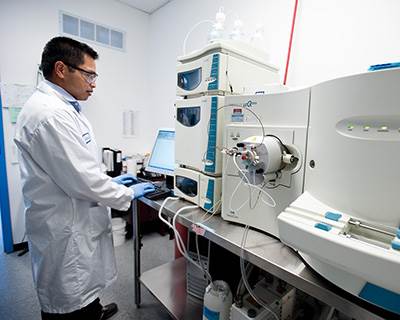Clinical Trials have become highly advanced with each passing day; the development of new drugs is not valid without carrying clinical trials.
But what is an efficient way to carry out clinical trials?
A biomarker is a crucial indication tool in drug discovery and knowing the severity of the disease. Biomarkers have turned into an integral part of the screening, detecting diseases, and optimizing the quality of new drugs. Biomarkers are being used since generations to keep a check on processes. Can you imagine how inaccurate and time consuming clinical trials would have been without biomarkers? By 2025 it is expected that the market value of biomarkers is estimated to reach about 9US $1.4 billion.
Importance of Validation in Biomarkers
Since Biomarkers are extensively used, its qualification for biological processes is a crucial step. The integration of biomarkers in biological processes requires Validation. Qualification and Validation are often thought of as the same process. Qualification of a biomarker is basically testing the action of biomarkers, and Validation is documenting how well your biomarker works and proving the results obtained by experiments. Based on the assay, there are Exploratory biomarkers and Valid biomarkers. Exploratory biomarkers are less tested, gives a predictive background for known valid biomarkers. The gap between exploratory biomarkers and valid biomarkers can be filled through Validation.
Principles of Biomarker Assay Validation
A biomarker Validation is ideal for the precise detection of any clinical trials. Any process would require a sensitive and specific biomarker, lack of any one aspect can affect the efficacy of testing. Due to a certain history with the issues associated with biomarkers, FDA proposes the guidance for the Validation of biomarkers. The Biomarkers which match the standards are applicable for experimentation.
Fit-for-the-Purpose Method Validation
Not just functional and safe, your biomarker should also be suitable for its purpose. Fit-for-the purpose method is designed, keeping in mind the intended use of data and the attendant regulatory requirements associated with that use. It involves complete advanced stages of Validation for application. The process relies on satisfying the accepted standards and characterizes the performance of the assay. If biomarkers attain the expectations of experimentation, it is considered as fit for purpose. The FDA suggests considering the other factors, including sample size, sampling plan, laboratory/technician proficiency, measurement uncertainty.
Endogenous Quality Controls for Monitoring Actual Biomarker
Endogenous quality controls are essential instead of relying entirely on recombinant compounds. The levels of biomarker levels should be taken into consideration. It involves two methods, Addition method, and the Subtraction method, to check the analyte. The addition method is focused on comparing observed results and expected results while the subtraction method the concentration of tested biomarker observed is subtracted from the amount observed in spiked VS. The difference is taken for the calculation. The selection of the process is critical and depends on the assay.
Study of Physiology of Biomarkers
Physiological studies of biomarkers used in the detection of the metabolic status of biological functions are necessary. The performance of biomarkers helps you to understand the nature and efficacy of biomarkers incorporated. Also, if biomarkers show any adverse effects after incorporation, it can be prevented.
Accuracy of biomarkers
You can measure how precise the biomarker works but to measure the accuracy of biomarkers is a difficult task. The five essential parameters determine the accuracy of biomarkers: sensitivity, specificity, Dilution linearity, Assay range, Reagent stability, and Sample stability. Any biomarkers should achieve these validation parameters.




Leave Comment